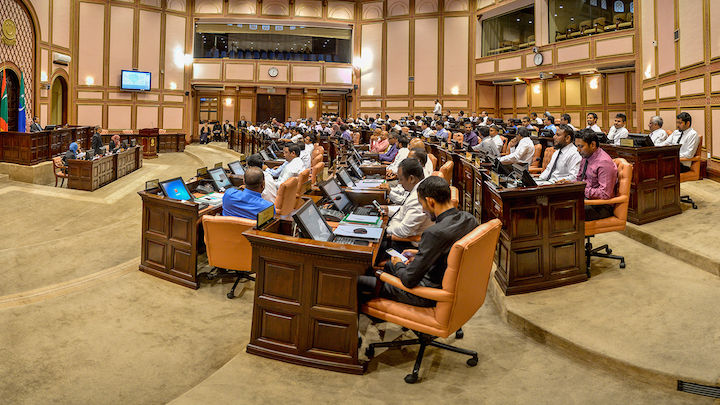Enforcement of criminal procedures law postponed by six months
The landmark Criminal Procedures Code, approved in April and set to come into force on January 7, will now be enacted in June next year.

22 Nov 2016, 09:00
The People’s Majlis voted Tuesday to postpone the enforcement of a landmark law on criminal procedures by an additional six months, with the ruling Progressive Party of the Maldives contending that more time was needed to train law enforcement officers, prosecutor and judges.
The landmark Criminal Procedures Code, approved in April and set to come into force on January 7, will now be enacted in June next year.
Some 42 MPs voted for the delay, while 27 MPs said No.
The law outlines rules to investigate, prosecute and pass judgment on suspected criminal offenders, and limits the discretionary powers currently afforded to judges, police officers and prosecutors.
Become a member
Get full access to our archive and personalise your experience.
Already a member?
Discussion
No comments yet. Be the first to share your thoughts!
No comments yet. Be the first to join the conversation!
Join the Conversation
Sign in to share your thoughts under an alias and take part in the discussion. Independent journalism thrives on open, respectful debate — your voice matters.




